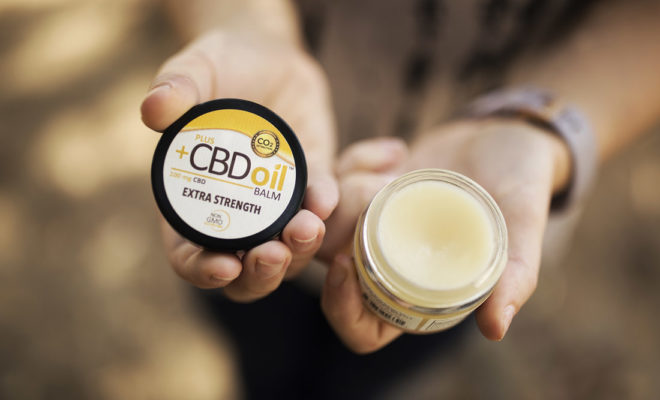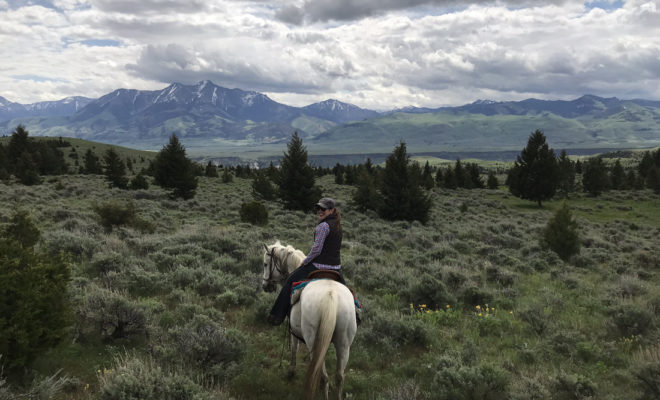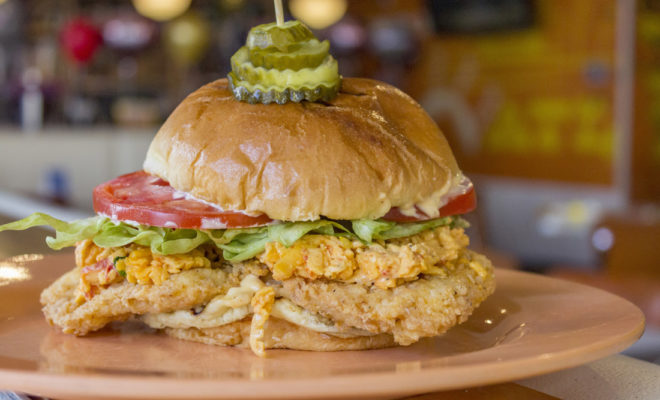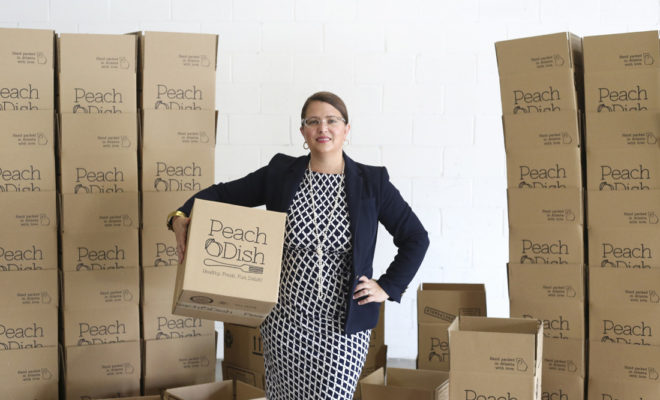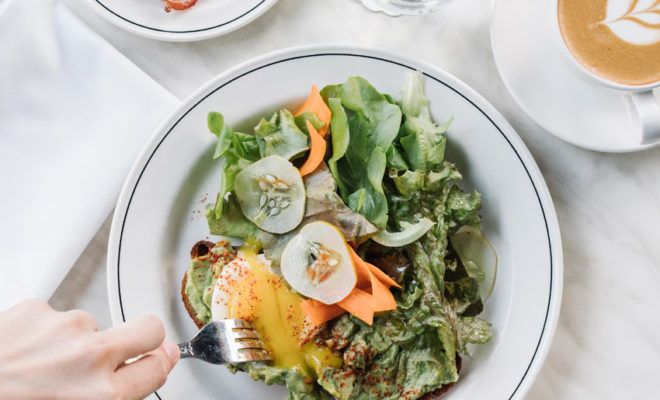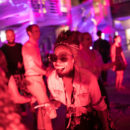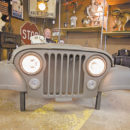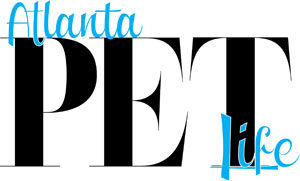CHARLENE DUNBAR
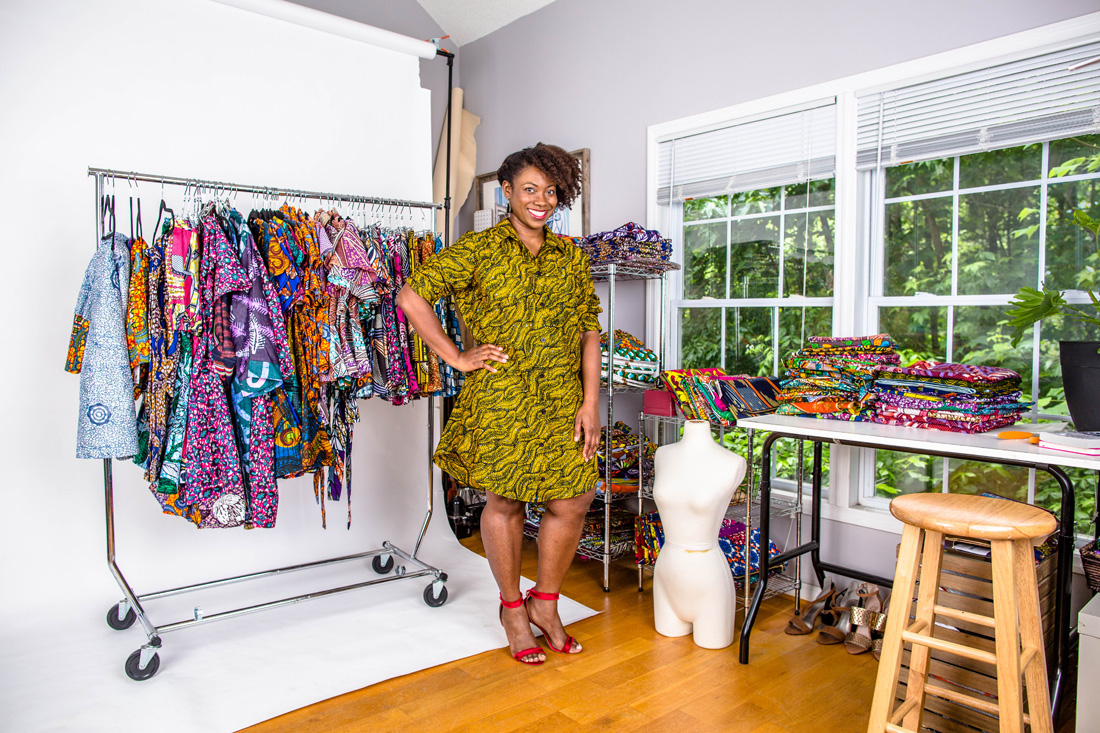
Owner/designer, Suakoko Betty
STORY: Jennifer Bradley Franklin
High school angst inspired Charlene Dunbar to create Suakoko Betty (pronounced “SWAH-ko-ko”), her own line of vibrant, contemporary women’s clothes made from printed fabric popular in her native Africa. “I came to Gwinnett County as a teenager from Liberia, West Africa, and I joked that it wasn’t cool to be African then,” says the 39-year-old designer. “I struggled with adjusting.” While most kids were into the grunge trend, she started wearing African clothes. Fast forward more than 20 years and Dunbar has a chemical engineering degree, experience selling her designs at one of America’s major retailers and a collection available locally at The Beehive in the Edgewood shopping district.
Though she felt drawn to designing and creating beautiful things, the hardships that came with emigrating to Atlanta from Monrovia, Liberia’s capital city, in the early 1990s inspired her to use her strong math and science skills to get a degree from Georgia Tech and a subsequent job at a Fortune 500 company. “[I thought] ‘your parents didn’t fight to come to this country running from bullets for you to do some frivolous career.’ I wanted to get a good job and help my family,” Dunbar says. Still, she didn’t quite feel satisfied. “I was grateful for the opportunities, but there was something missing.” Dunbar went on to learn draping and pattern making and earn a design degree in 2006 from American Intercontinental University in Buckhead while working full-time, simply because it fed her love of fashion.
She had an “ah-ha” moment in 2010 when her husband, who works in the music industry, found an opportunity to showcase her designs at a Tennessee music festival. She sewed a striking, 30-piece collection of mini-dresses and vibrant skirts made of African wax print fabric, a traditional style of carving prints into wax, stamping the print onto fabric, dyeing it and melting the wax to reveal the print. She sold every single piece that weekend.
“I wanted to create African clothing that wasn’t garb,” the mom of two says of the tribal attire often worn only for special occasions. “I knew there had to be other people who wanted to recognize their culture and celebrate it.” She began making capsule collections, selling out at festivals and using those experiences as minifocus groups to learn more about her clients’ preferences. She named her fledgling brand Suakoko Betty, fusing the name of her father’s hometown in Liberia (Suakoko means “place of new beginnings”) and Betty, which Dunbar thought sounded like the name of an American girl next door.
Dunbar’s next big break came at the end of 2013 when her mother encouraged her to apply for Belk’s Southern Designer Showcase competition. From a field of more than 300 applicants, she made it to the semi-final round of 60 designers who went to Charlotte, North Carolina, to pitch their pieces to buyers in person. The designer positioned next to Dunbar confidently told buyers of the thousands of dresses she sold in a year. “I thought I’d never make it over these people who were so seasoned,” recalls Dunbar, who typically sold only a handful of each design, all of which were stitched by an Atlanta-area seamstress. She was asked to attend what she thought was an additional callback at the Phipps Plaza Belk store only to be surprised with the good news. As the 2014 winner, Suakoko Betty was sold in Belk stores around the country for a year. “My corporate self had to merge with my designer self,” she says, since she went from selling a couple hundred dresses a year to more than 2,000 that year.
Now, Dunbar retails a rotating collection of 10 to 12 Suakoko Betty styles both at The Beehive and through its e-commerce site, all made from fabric she sources during once yearly buying trips to Africa. This summer marks another milestone for the designer: She’s leaving her long-time corporate gig and will throw herself into taking the brand to new heights. Though her modern jumpsuits, blazers, pencil skirts, maxi and mini dresses, clutches and head wraps are made with the same durable wax print fabric her mother wore in Liberia, Dunbar insists that Suakoko Betty is for every stylish woman, regardless of their heritage. She says, “When I see someone rocking it, it’s a celebration of the culture I love.”

